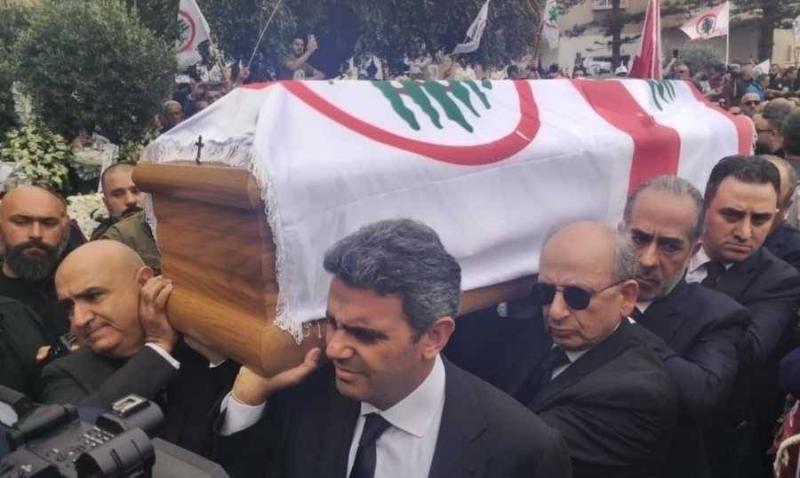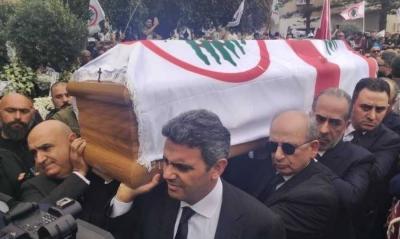International warnings directed at Lebanese officials have become diverse. They are no longer limited to developments in the south. Undoubtedly, any escalation in the war in the south will have political repercussions internally, amidst the ongoing division between those who reject this confrontation or the idea of making Lebanon a supportive front and criticize it, raising their political stance in objection, and those who support it and cling to it, as reported by "Al-Mudun." Certainly, if the frequency of operations in the south escalates, the internal division will increase. Alongside this ongoing concern, there have been successive and varied security breaches within the local landscape, the latest of which was the kidnapping and murder of Pascal Souleiman, the coordinator of the Lebanese Forces in Jbeil, and the kidnapping and murder of the money changer Muhammad Sarour.
### Warning Messages
The security incidents intertwine with military realities at the borders, against the backdrop of a significant division that foreshadows numerous dangers. This was also expressed by the leader of the Lebanese Forces, Samir Geagea, in his speech during Pascal Souleiman's memorial, affirming, in response to questions about the upcoming phase, that "it is the time for danger for the Forces," indicating a clear refusal to yield or retreat and a commitment to continued political confrontation... leading to his clear reference to the insistence on exiting the state of control by illegal weapons. This statement carries many implications if the conflicts continue without the ability to reach a settlement that maintains what remains of the state’s structure.
Amid this conflict of visions and orientations, warnings from some countries to their citizens against traveling to the Middle East, particularly Israel and Lebanon, have resurfaced. These warnings were issued by the Russian and French foreign ministries, which entail possible escalatory scenarios that Lebanon may face, linked to Iran's response to the Israeli targeting of the Iranian consulate in Damascus. Furthermore, confrontations in Lebanon may transcend the matter of Iran's response and continue at their escalating pace amid ongoing Israeli threats, which point to preparations to expand the scope of military or security operations and move to a new phase of strikes or targeted areas.
### Security Exposure
In this context, Lebanon's state of security exposure cannot be overlooked, especially following the assassination of money changer Muhammad Sarour under accusations of collaborating with Hamas, Hezbollah, and the Iranian Revolutionary Guard. This opens a new avenue for Israeli intelligence activities in Lebanon. Notably, Sarour underwent intense interrogation to obtain information about his operational mechanisms and his contacts within and outside Lebanon. This indicates an Israeli strike on the financial supply lines for Hamas and those providing any assistance to the movement. Such incidents could recur in the coming phases, as long as Lebanon remains unable to fortify itself politically, militarily, or security-wise.
Lebanon remains mired in this vortex, with no option but to await the outcomes of the war in Gaza and the moment it halts, to resume diplomatic activities in search of a political solution to the explosive crisis at the southern borders.
### French-American Race
In this context, the French-American competition persists, alongside continuing communication and coordination simultaneously, evidenced by the meeting between U.S. envoy for global energy security Amos Hochstein and French envoy to Lebanon Jean-Yves Le Drian. The French perceive that the Americans are freezing all their efforts while awaiting a halt to the war in Gaza. This carries significant risks that could lead to a major escalation in Lebanon.
The French are attempting to convince the Lebanese to adopt the option of their proposed document, especially since Paris claims to have received a positive Lebanese stance regarding the points presented. However, they still categorize this response as a diplomatic reply without any effective application, as long as confrontations continue. Here, monitoring sources indicate that no one wants to grant the French this role, neither in Lebanon nor in America, according to "Al-Mudun."




